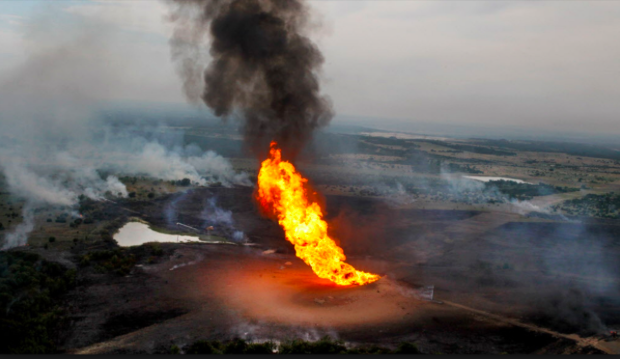A commodity price is a marketable item, produced to meet the needs of a consumer. In terms of trading gas and electricity, the process can be compared to stocks and shares on trading platforms. It’s important to be aware of energy commodity prices as knowledge of fluctuations will allow you to purchase energy at the lowest price. Energy prices change hour to hour, day to day or week to week, and so there are a huge combinations of factors which can affect the price. In terms of your energy procurement, it’s important you have an understanding of these factors so you have an idea of the best time to procure your energy at the best price.
Weather
The weather is one of the most important factors affecting the energy market; with changing seasons comes different requirements for energy. In hotter temperatures during the summer months, the demand for air conditioning increases; the demand for electricity subsequently increases, and prices for natural gas rises. In the UK, this is more likely to be heating during the winter months which causes prices to rise due to colder weather! The US markets rely heavily on natural gases to generate electricity, and so with a spike in seasonal natural gas prices, the prices of electricity also increase for customers. Whilst seasonal trends are expected by the industry, unexpected extreme weather conditions still place a strain on the network.
Natural Disasters
Causing uncertainty in the market, natural disasters such as hurricanes, earthquakes and tsunamis all affect energy markets. The loss of infrastructure in terms of power lines, shutting down power plants, and the loss of the market as housing is destroyed all affect prices. In March 2011, an earthquake, and consequenting tsunami hit Japan. This caused nuclear accidents as it disabled the power supply and cooling of three Fukushima Daiichi reactors. Subsequently, gas prices rose; 11 of Japan’s 54 nuclear power stations were out of action, and so Japan had to react, importing more LNG. Due to increased demand, the price of LNG rose; affecting the UK as analysts warned of higher energy prices in the UK as 20% of our power comes from LNG.
Geopolitical Events
Geopolitical events have a huge impact on the energy market. Recently there have been a number of political shakeups, including Brexit and the Presidential Election. As the results came in on November 8th, markets around the room went into a tailspin as commodities and stock markets steeply fell. Throughout Trump’s Presidency, we will need to keep an eye on energy prices, which are sure to fluctuate with campaign promises including fewer regulations for the fossil fuel business to rebuild the coal industry. He vowed he would ‘bring back coal,’ which saw coal companies shares increase by more than 70% in Peabody Energy’s case following the results.
It’s also worth noting that unrest in the Middle East can also determine gas prices; with huge political unrest in the region the majority of the world’s oil reserves lie affects prices when conflicts occur. The markets react by bidding up the prices of the oil which enables it to still be available to the highest bidder due to the perception of a shortage, even if production remains at a constant rate.

Infrastructure Accidents
The Texas Eastern Transmission is made up of 9,096 miles of pipeline, connecting the Gulf Coast and Texas with high demand markets in the northeastern area of the USA. An explosion occurred near Pittsburgh on the 29th April 2016, as the pipe was carrying liquified petroleum gas (LPG). If a pipeline ruptures whilst carrying these sorts of pressurised gases, the resulting explosions and flames are extremely dangerous. Following the explosion, it was unclear when service would resume, and the company called force majeure at midday, sending natural gas futures surging by 5.6% on the New York Mercantile Exchange due to speculation that there would be limited supplies to the Northeast; including major cities such as New York City.

Legislation
The majority of the world’s oil reserves and production are controlled by government run companies, heavily controlled by politics. But it’s not just legislation at home that affects your energy prices; policies and taxes in oil-rich countries also affects prices of oil. If a country’s government bans oil exploration in a place known to be vast in resources for example in the Gulf of Mexico, in commodity markets, it’s seen as a loss in supply; meaning prices increase.
There are of course other factors which affect the market; generation availability for example, not just in the UK, but also in Europe. For more information on this, please take a look at our latest market update.
There are many factors which have an impact on the price you pay for energy and not all are weighted equally in importance. Whilst some of these factors can be predicted, many World events cannot be foreseen, and so it’s important to keep an eye on the market. Whilst this might seem overwhelming to be always aware of energy prices and the reasoning behind the peaks and troughs, our expert energy advisors are always aware of pricing, and any upcoming events which are expected to change the market. They would be excited to discuss the current market with you and advise you the best time to procure your energy.

